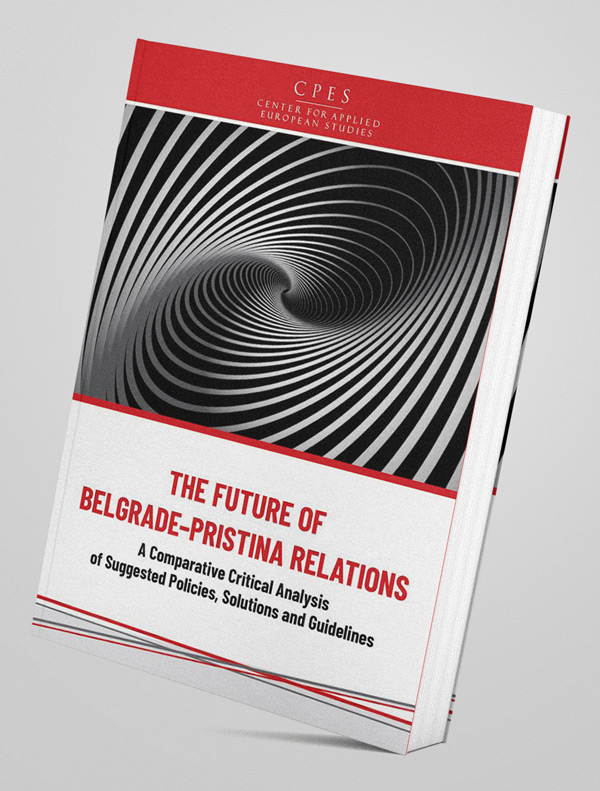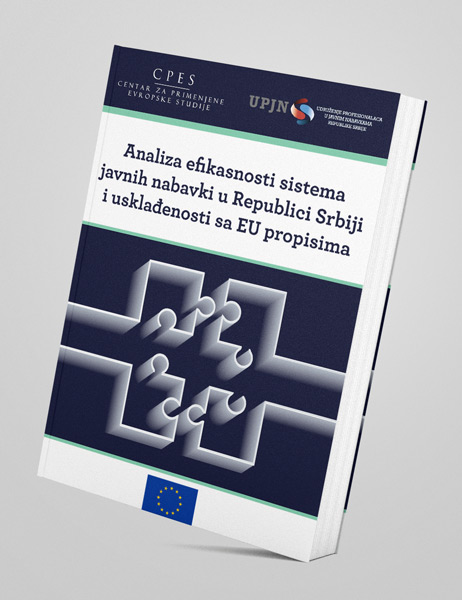Publications
The future of Belgrade - Pristina Relations
A Comparative Critical Analysis of Suggested Policies, Solutions and Guidelines
2019 – Jovica Pavlović, Center for Applied European Studies
Kosovo is one of the key issues that Serbia needs to address on its path to becoming a European Union member state – Negotiating Chapter 35 clearly states that Serbian accession to the EU depends on its capability to normalize its relations with Kosovo. Bearing this in mind, this comparative critical analysis – which is conceived as a comprehensive political document – aims to provide a policy paper that, if implemented, has the potential to contribute to the European integration efforts of the Republic of Serbia. This analysis is a result of a project “The Internal Dialogue on addressing Kosovo Issues: Security Aspects”, which was conducted with the aim of providing fresh insights into the possible solutions to the Serbia-Kosovo issue. The project made an effort to include experts from the region of Southeast Europe in the dialogue with the aim of providing a regional outlook on the three possible solutions to the problem of Kosovo; solutions that have derived from the local dialogue which has taken place within Serbia. The analysis concludes by expressing the hope of the authors, and most of the conference and roundtables participants that there is enough political maturity and wisdom in Belgrade and Pristina to recognize the chance and moment to utilize EU’s mediation to resolve decades – long issues; issues that presents a burden and threaten not only to Belgrade-Pristina relations, but also to the stability, security and economic prosperity of the entire region.
Three scenarios for Serbia-Kosovo Relations and Security in Southeast Europe
2019 – Center for Applied European Studies
It has been almost twenty years since the end of the Kosovo war and more than ten years since Kosovo declared independence. To date, relations between Serbia and Kosovo remain not only undefined, but the general impression is that they are even more vague than before. The publication analyzes three possible scenarios for future relationships, namely: 1) Status quo, that is, further delay of reaching an agreement and continuance of the current situation; 2) Change of borders, that is, “territorial exchange” or “demarcation”; and 3) Normalization of relations through the achievement of a legally binding EU-mediated bilateral agreement. In addition to these three scenarios, we felt that the internal dialogue lacked an understanding of views on Serbian-Kosovo relations from the SEE region, since Serbia-Kosovo relations are not realized in a vacuum but are part of a broader, regional framework that may also be affected. The publication should contribute to the continuation of an informed dialogue on “resolving the Kosovo issue” that is desirable and needed in democratic societies, since it is the only way to overcome chronic instability and tensions in the relations between the two societies.
Document is available in Serbian language only.
Public Procurement in chapters 23 and 24
2019 – Coalition prEUgovor
Due to substantial public funds spending, well-conducted public procurement can and must play one of important roles in strengthening the efficiency of the public sector and building citizen trust both in the public procurement system and competent institutions conducting supervision of the application of regulations and implementation of procedures in this field. Still, public procurement, as an important part of public spending, is the area particularly vulnerable to irregularities in all phases of implementation. The consequences of inadequately implemented public procurement procedures have a twofold negative influence on the work of all contracting parties: the costs of their functioning increase, while the quality of services they provide to citizens is weaker than needed.
In terms of this analysis, particularly important are the benchmarks which require the strengthening of control mechanisms, including direct monitoring and improvement of transparency of the phase of execution of public procurement contracts and systemic risk assessments with the prioritisation of control in the most vulnerable areas and procedures, including the measures concerning the prevention of and struggle against corruption and conflict of interest in the public procurement field.
Analysis of the Efficiency of the Public Procurement System in Serbia and its Compliance with EU Regulations
2019 – Center for Applied European Studies
Towards permanent resolution of Serbia's open issues with its neighbors
2019 – Center for Applied European Studies
The disintegration of Yugoslavia in the early 1990s and a series of associated wars have had profound consequences on the lives of citizens of Serbia and neighboring post-Yugoslav states. Human losses and refugees have marked the fate of millions of people. War damage and the collapse of the economy have threatened the social and economic security of a huge number of citizens, leaving them poorer and in relative backwardness and delayed economic transition compared to other areas of Europe. The formation of new states also brought the need to regulate new topics, from issues of mutual delineation to the position of ethnic minorities. The intersection of these problems has, to this day, left a number of disputes and unresolved issues that are actively affecting relations between the countries in the region. Since the end of 2016, the CPES research team has analyzed the bilateral relations of Serbia with neighboring countries within the project “Towards a New Foreign Policy Strategy of Serbia: Relations with Neighbors “, focusing on problematic areas in bilateral relations and ways of overcoming them.
This publication focuses primarily on bilateral issues in three thematic sections: War heritage, border issues and the position of ethnic minorities.
Document is available in Serbian language only.
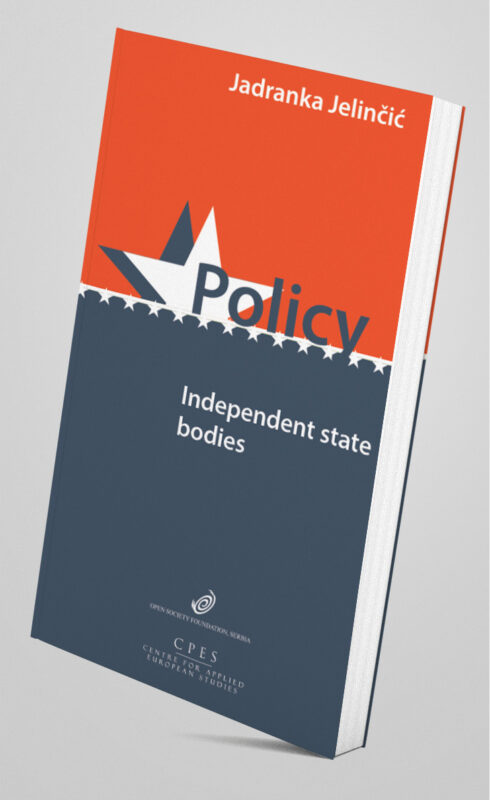
Independent State Bodies
2016 – Jadranka Jelinčić
In accordance with the principle of separation of powers in a system of electoral representative democracy, the parliament (the first branch), the government (the second branch) and the judiciary (the third branch) are the pillars of the institutional arrangements of democratic states. In addition to bodies belonging to the three traditional branches of government, there have always been other state bodies which are independent from them. The reasons for their establishment have been various: the necessity to dispose with specific knowledge and the ability to apply it in order to safeguard the public interest; the will of a society to (additionally) safeguard and protect certain values or principles of particular importance for the society above and beyond any ideological, political or particular interest (e.g. human dignity protected by a set of guaranteed rights and freedoms and prohibition of discrimination) ); or to boost accountability of holders of public office etc. For these reasons, since the 18th century, independent state bodies have gradually come to be established and vested with powers to control other state bodies and correct market imbalances so as to provide effective protection of principles and values on which the basic “social contract” is based.
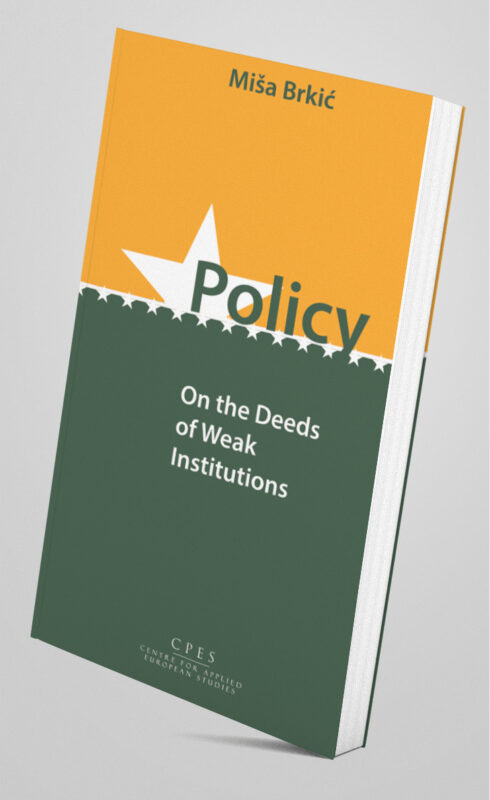
On the Deeds of Weak Institutions
2013 – Miša Brkić
The blossoming of corruption is not a feature of transition exclusively in Serbia. However, what is nevertheless distinguishing for Serbia among transition countries is that transition agony never seems to end as well as a total absence of sanctions that could have compensated at least a small portion of public funds expropriated by transition corruption.
The corruption deals were particularly characteristic of the process of privatization of social and state property and major public procurements. The causes of this situation are numerous, although, quite deliberately, political elites tend to usually find these causes in inappropriate regulations. The weaknesses of valid regulations have certainly enabled some cases of corruption which were unable to be properly sanctioned. However, one should bear in mind that regulations that were effective in the first decade of transition (2000–2010) did not provide a space for systematic corruption which is present in Serbia today. The described manner of exercising public authority made Serbia stagger in terms of the fight against corruption, in accordance with the slogan “one step forward – two step backwards”, without an evolutionary and sustainable development of anticorruption mechanisms and practices that would have gradually effected significant results.
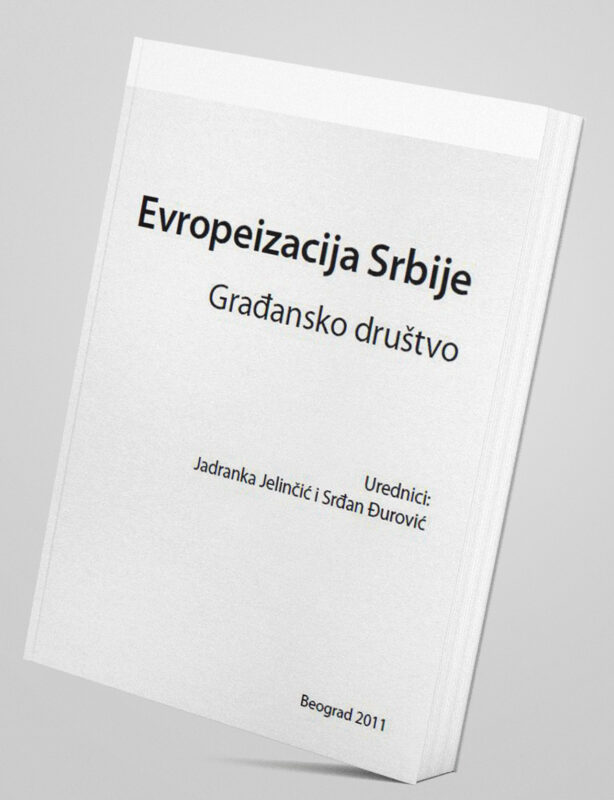
Europeanization of Serbia: Civil Society
2011 – Center for Applied European Studies and Open Society Foundation
A new study by the Center for Applied European Studies in cooperation with the Open Society Foundation was published within the “Europeanization of Serbia” edition and it deals with civil society. The overall EU integration process taking place at European level entails a long-term transformation of the social and political space of the European Union itself. Serbia’s accession to the EU is the most important political and development project of a democratic Serbia. Both processes involve the active participation of civil society. The study analyzes the role of civil society in the processes of EU integration and Europeanization of Serbia, the reasons why the opening of Serbia’s EU accession process in 2005 changed the social and political context in which civil society organizations pursue their mission, the challenges these two processes posed to civil society and possible answers to them.
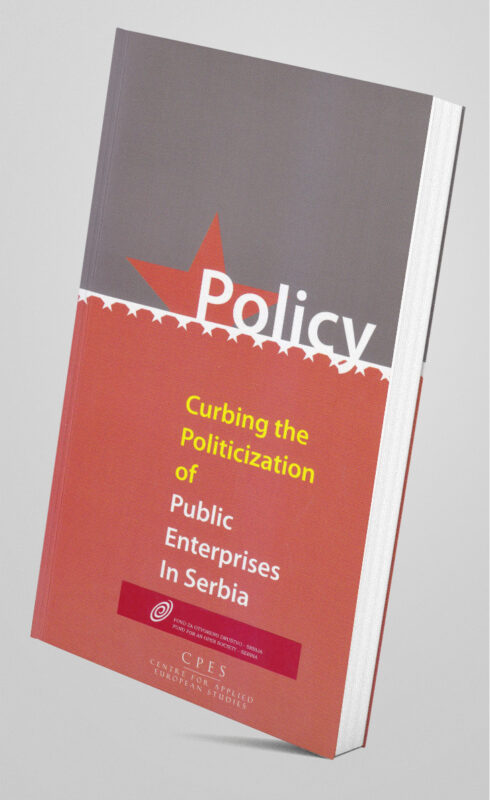
Curbing the Politicization of Public Enterprises in Serbia
2011 – Center for Applied European Studies
Public enterprises constitute a significant part of the Serbian economy and provide some of the key infrastructure services to both citizens and companies. In Serbia almost an entire sector of public utility enterprises has remained in state ownership, set up to provide services at the local or regional and national level, including the most significant enterprises in the area of energy production and transport, telecommunication, air transport, etc. In 2008, public enterprises had close on 150 thousand employees, which is about one eighth of total employees in enterprises in Serbia. Although the number of employees in public enterprises has been decreasing since the beginning of transition, these enterprises are still among the largest employers in Serbia. Total revenue from public enterprises in 2008 was about 850 billion dinars, or 10.5 billion Euro. Their revenues make up about 15 percent of overall revenues of enterprises in Serbia. The ratio of total revenues between public enterprises to GDP is about 1:3.
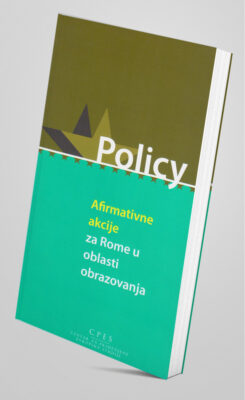
Affirmative Action for Roma in the Field of Education
2011 – Center for Applied European Studies
This is a study of one practical policy – affirmative action policy for Roma in the field of education in Serbia. The notion of affirmative measures is rather new in our legal system. However, given the fact that affirmative action in various forms has been in place for seven years now (2003–2009), it is crucial to review existing policies in terms of their effects on improving the educational status of Roma and increasing the degree of inclusiveness and cohesion of society as a whole. The introduction of an affirmative action measure into the legal system means that society recognizes the gap between the protection of certain rights and the accessibility of those rights to marginalized and vulnerable groups, striving continuously to ensure equal opportunities for all citizens. Having in mind the purpose of affirmative action – improving the position of the Roma population and increasing the degree of inclusiveness and cohesion of the society – this study brings the analysis of the existing policies, legislative framework and institutions along with the evaluation of the implementation and effects of the existing measures.

Agricultural Policy: The Dairy Sector
2009 – Center for Applied European Studies and Open Society Foundation
This analysis gives an overview of the state of affairs and identifies key problems in the dairy sector, both in the terms of production and trade. This description of the sector’s situation is complemented by an analysis of the effects of Serbia’s accession to the EU on the dairy sector. Subsequently, key issues pertaining to legislative framework, implementation of policies and institutional arrangements necessary for the implementation of envisaged reforms are identified. Finally, recommendations for the Government have been formulated, about how to help the sector adjust to the European integration processes. The analysis also seeks to examine the twofold positive contribution of EU accession and the application of EU standards: 1) the importance of agricultural production standards from a public health perspective, and 2) economic development and the concrete benefits of EU accession, including market enlargement and access to EU structural funds. The publication contains a policy study and a broader basic study.
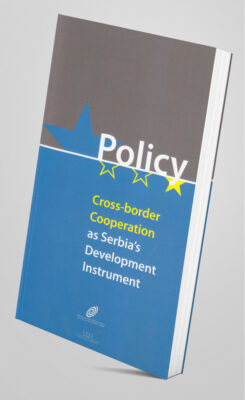
Cross-border Cooperation as Serbia’s Development Instrument
2009 – Center for Applied European Studies and Open Society Foundation
This analysis deals with regional development and cross-border cooperation in the context of European integration. The research methodology is given as a comparative analysis of two municipalities – one in Serbia and the other in one of the EU member states (Knjazevac municipality and Lendava municipality in Slovenia) and presents an analysis of the potential of cross-border cooperation for local economic development, including the use of EU funds available for cross-border cooperation.

Environmental Protection: A Condition for Sustainable Development
2009 – Center for Applied European Studies and Open Society Foundation
Environmental protection is one of the key areas in the process of Serbia’s accession to the EU, both from a developmental and human rights standpoint. The analysis focuses on the case of city of Pancevo and the current state of the environment protection and the consequences it has for human safety. A particular area of research is the question of the transposition of national policies at the local level. This analysis seeks to show the consequences of the integration process on the lives of Pancevo citizens. The publication contains a policy study and a basic study.
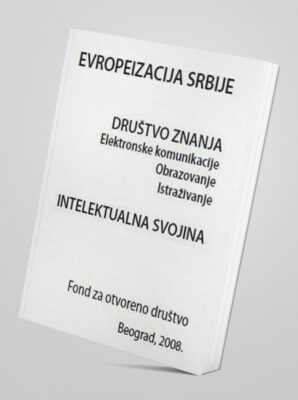
Europeanization of Serbia: Knowledge Society
2008 – Center for Applied European Studies and Open Society Foundation
The decade of the 1990s is considered to be a period in which the international economic and political system has reoriented itself towards global reach and prospects. Expansion of interregional production, deregulation of trade, increasing interdependence between countries and their economies – these were all factors that created the need for rapid and immediate reconstruction and creation of political, economic, institutional and legal systems at national and international level capable of meeting the demands of new global phenomena. This publication looks at unified fields of electronic communications, education, research and intellectual property as elements of a comprehensive knowledge-based development policy.


